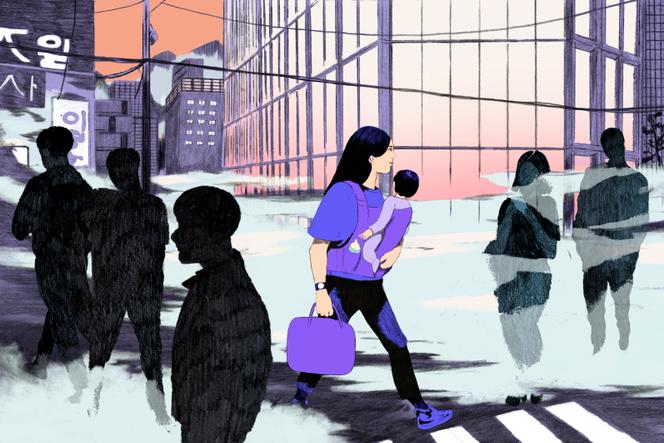


Frowned upon by a still highly unequal society, divorced South Korean mothers prefer to be business owners rather than employees. Such is the opinion of Kim Lee-kyung, a short-haired, composed woman in her 50s who runs four cafés, including the impressive and vast Fessonia in the heart of Seoul's Dongdaemun Design Plaza. "It makes it easier to organize your schedule and avoid derogatory remarks," said the manager, who values her independence in a country ranked 94th out of 146 for gender equality, according to the World Economic Forum. "Ever since I was young, I've heard the proverb: 'If a woman's voice is heard outside the home, the home is ruined.' I've never been able to accept that," said Kim.
Kim has two children, a girl and a boy. "When I got divorced, they were in high school. It wasn't too hard for them and they understood that I had to work a lot. I think today they're proud of my success."
The situation is harder to explain to young children. "I got divorced while my son was still a baby," said Shin Kyong-ah, the energetic CEO of the environmental start-up Ecocow. Shin received 900 hours of nanny assistance per year, a benefit provided by the district office where she lives in Seoul. "I would wake up, take my child to daycare, and then work from home and the office. The nanny would pick him up around 4 pm, take him to her home, and bring him back to mine at 8 pm." The problem was that the 900 hours ran out quickly, and she couldn't get any more. Once, she even had to take her sick son to an investor presentation. "Eventually, my parents moved in with me, and they've been a great help. It's such a relief."
You have 62.82% of this article left to read. The rest is for subscribers only.
